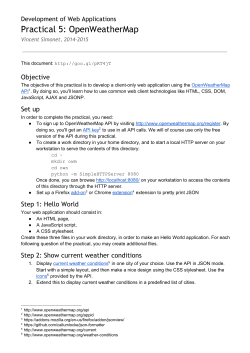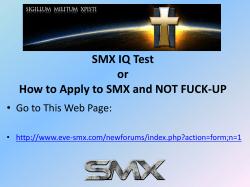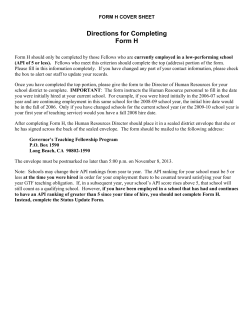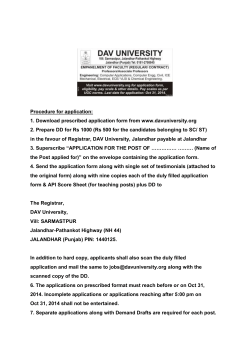
API Tank Standards Update
API Tank Standards Update The National Petroleum Management Association PETRO 2013 Hilton Alexandria Mark Center Alexandria, Virginia November 20, 2013 Steve Crimaudo Manager, Downstream Standards American Petroleum Institute 1 API Tank Standards Update From – API Statistics Department: Monthly Statistical Report August 2013 release • Total petroleum deliveries decreased by 0.7 percent from August 2012 to average 19.1 million barrels per day in August. • For year to date, total domestic petroleum deliveries, a measure of U.S. petroleum demand, were up by 0.4 percent compared to the same period last year. www.api.org - Publications Standards & Statistics 2 API Tank Standards Update From – API Statistics Department: Monthly Statistical Report August 2013 release • Total motor gasoline deliveries moved up 0.4 percent from July, but were down by 0.9 percent from August 2012 to average nearly 9.1 million barrels per day. • For year to date, gasoline deliveries decreased by 0.3 percent compared with year to date of 2012. • Distillate Fuel Oil deliveries increased by 2.3 percent compared with August 2012 to approximately 3.8 million barrels per day. 3 API Tank Standards Update From – API Statistics Department: Monthly Statistical Report August 2013 release • At 1.4 million barrels per day, deliveries of kerosine-jet fuel in August decreased by 0.3 percent from August 2012, and decreased by 2.5 per-cent from July. • This was the second lowest deliveries for the month in 20 years, since 1993. www.api.org - Publications Standards & Statistics 4 API Tank Standards Update From – API Statistics Department: Monthly Statistical Report August 2013 release • U.S. crude oil production in August increased by 1.2 percent from July and was up 20.3 percent from August 2012 to nearly 7.6 million barrels per day. • – The highest output for the month in 25 years. www.api.org - Publications Standards & Statistics 5 API History 1919: API founded as non-profit national trade association, New York City 1980s: API relocates to Washington, DC 1995: API Dallas Standards Office relocates to Washington, DC 2007: Opened offices in Beijing 2011: Singapore and Dubai, UAE offices opened 6 API Roles • • • • • • • • Advocate industry positions on various issues Develop industry standards Gather statistics Conduct research Inform government and public Implement and manage quality programs Publish technical industry information Provide education and training 7 Background on API Standards Program The API Standardization Department was formed in 1923, with the first API standard published the following year on drilling threads. All industry segments now active in standardization: • Exploration and Production • Pipeline Transportation • Refining • Marketing 8 API Standards • API now publishes more than 600 technical standards covering all aspects of the oil and natural gas industry • Foundation of Self Supporting Programs • Basis for Worldwide Operations • Core of Institute’s Technical Authority 9 Standards Development Process • The API Standards program is accredited by the American National Standards Institute (ANSI) – the program was reaccredited by ANSI in Oct. 2011 following a 2010 audit. - Openness, Balance, Consensus, Due Process - Regular program audits (conducted by ANSI) • Transparent process (anyone can comment on any document in process) - All comments must be considered 10 Standards Development Process • Developed by consensus (does not mean unanimity) • Committee balance between users/owner operators, manufacturers and contractors/consultants • Standards developed using ANSI approved API Standards Development Procedures (available on-line at www.api.org) • API corporate membership is not a requirement for participation on API standardization committees. • Support from your management to participate is. 11 Use of API Standards • “De facto” international standards • Adoption by reference common by State and Federal agencies – BSEE, USCG, DOT, OSHA and EPA • API does not promote adoption - prefer voluntary use • Written for flexibility as performance based documents 12 API Standards Committee Structure Committee on Standardization of Oilfield Equipment & Materials Committee on Petroleum Measurement • Marketing/Aviation • Pipeline Transportation • Safety & Fire Protection Committee on Refinery Equipment Drilling and Production Operations Subcommittee To support the Standards there are Certification programs: API Monogram Program, Individual Certification Programs and others, www.api.org - Certification Programs 13 API Storage Tank Standards API publishes over 70 standards, recommended practices, and bulletins covering various aspects of tank operations • Design & Construction • Inspection • Measurement and emissions • Safety & Fire Protection - Safe Entry, Overfill Protection • Environmental - Leak detection, Release Prevention, Emissions 14 API Storage Tank Standards For committee access: mycommittees.api.org/standards/cre/scast/default.aspx Next Standards meeting: 2014 Spring Refining and Equipment Standards Meeting May 19 – 20, 2014 in Orlando, Florida www.api.org/events-and-training/calendar-of-events.aspx 15 AST Standards - History [From 653 - Annex A: Background on Past Editions of API Welded Storage Tank Standards] • API published a specification for welded steel storage tanks in July 1936 entitled API Standard 12C, All-Welded Oil Storage Tanks. • API 12C was replaced by API Standard 650, Welded Tanks for Oil Storage in December 1961; • Many editions, revisions or addenda to API 650 have been issued since. 16 API Tank Standards Update 17 Design & Construction API 620, Design and Construction of Large, Welded, Low-Pressure Storage Tanks • Designed for metal temperatures not greater than 250°F and with pressures in their gas or vapor spaces not more than 15 psig (pounds/square inch) • Appendix Q covers liquefied gases at temperatures not lower than –325°F • Appendix R covers refrigerated products at temperatures from +40°F to –60°F 18 Current Edition of API 620 • The 12th Edition was published October 2013. 19 API Standard 625 - Tank Systems for Refrigerated, Liquified Gas Storage • API 625 is a new standard for refrigerated tank systems • Integrates the three related standards - API 625, API 620 and ACI 376 • Brings American standards up to date with coverage of the single, double and full containment concepts 20 API Standard 625 - Tank Systems for Refrigerated, Liquified Gas Storage • API 625 and the revisions to API 620 were worked by the Refrigerated Tank Task Group (RTTG) for several years. • API 625, First Edition was published August 2010 • API 625, Addendum 1 to the First Edition was published July 2013 21 Tank Design & Construction API 650, Welded Tanks for Oil Storage – Primary construction code for refinery and storage terminal AST’s – Covers material, design, fabrication, erection and testing requirements – For tanks whose entire bottom is uniformly supported 22 Current Edition of API 650 API 650, Welded Tanks for Oil Storage • 12th Edition was published March 5, 2013! • Errata to correct 12th Edition was published July 2013. 23 API 650 now part of API Monogram Program • New APPENDIX Y: API MONOGRAM (informative) Y.1 Introduction Y.2 API Monogram Marking Requirements • Licenses for: - Shop Built Tanks (Appendix J) and - Fabricated Steel Plates are available www.api.org - Certification Programs 24 API 650 API Monogram Program Active 650 Monogram Licenses: Imeteco S.A. Guayas, Ecuador - 650-0001 Ferrofab F.Z.E. Dubai, United Arab Emirates - 650-0002 Carlos Caballero SRL Santa Cruz, Bolivia - 650-0005 Palmer Mfg & Tank, Inc. Garden City, Kansas - 650-0006 Haug S.A. Callao, Peru - 650-0007 (Applicant) 25 Tank Inspection API 653, Tank Inspection, Repair, Alteration, and Reconstruction • Referenced or adopted in state and federal regulations • Minimum requirements for maintaining the integrity of tanks after they are placed in service • Applicable to welded, riveted, non refrigerated, and atmospheric pressure AST’s 26 Current Edition of API 653 API 653, Tank Inspection, Repair, Alteration, and Reconstruction – Addendum 3 to the Fourth Edition was published November 2013 27 Additional Standards being revised by SCAST - 1 12 Series Production Storage Tank Documents The 12 Series Task Group has begun work on to update the 12 Series Production Tank Standards and Specifications. Meetings are planned for the 2014 Spring Refining Meeting and are open to those with production tank experience. 28 Additional Standards being revised by SCAST - 2 Tank Safe Entry Documents • API Standard 2015, Requirements for Safe Entry and Cleaning of Petroleum Storage Tanks, Sixth Edition, Reaffirmed 2006, • Std. 2015 will be sent to API editing for formatting – anticipate publishing early 2014 29 Additional Standards being revised by SCAST - 3 Tank Safe Entry Documents • API Recommended Practice 2016, Guidelines and Procedures for Entering and Cleaning Petroleum Storage Tanks First Edition, Reaffirmed 2006 • RP 2016 is being worked by the task group with intent to ballot for Spring 2014 meeting. 30 Additional Standards being revised by SCAST - 4 Tank Cathodic Protection and Lining Documents Revisions to RP 651, Cathodic Protection of Aboveground Petroleum Storage Tanks, Third Edition, 2007 Revisions to RP 652, Linings of Aboveground Petroleum Storage Tank Bottoms, Third Edition, 2005 Will be sent to API editing for formatting – anticipate publishing early 2014 31 Marketing Operations Recent Activity: • API RP 1640 - Product Quality in Light Product Storage and Handling Operations • New First Edition – Published August 2013 32 API Comments to DOT - PHMSA Recent Activity: US Department of Transportation Pipeline and Hazardous Materials Safety Administration on August 16 – announced: 2013 Notice of Proposed Rulemaking regarding the incorporation by reference (IBR) of consensus standards. 33 API Comments to DOT - PHMSA Background: The National Technology Transfer and Advancement Act of 1995 (Pub. L. 104-113; March 7, 1996) Directs Federal agencies to use voluntary consensus standards and design specifications developed by voluntary consensus standards bodies - i.e. API Instead of government-developed technical standards, 34 API Comments to DOT - PHMSA • API believes the intent of the law clearly applies to new and revised consensus standards. • So….API submitted specific comments October 15th on the PHMSA proposal to not reference the current editions of: • RP 1162, Public Awareness Programs for Pipeline Operators, and • Standard 653, Tank Inspection, Repair, Alteration, and Reconstruction (New Sec. 6.4.2, Inspection Intervals) 35 API Tank Standards Update Thank you! Stephen Crimaudo Manager, Downstream Standards 1220 L Street, NW Washington, DC 20005-4070 Phone: 202-682-8151 crimaudos@api.org www.api.org mycommittees.api.org/standards/cre/scast/default.aspx 36
© Copyright 2025









